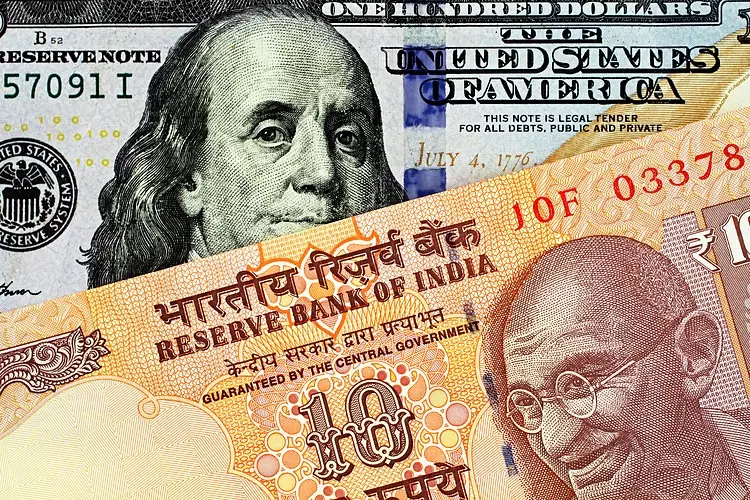Indian Rupee (INR) appears to gain momentum on Friday due to the cautious comments made by Federal Reserve Chair Jerome Powell, which have led to selling pressure on the US Dollar (USD). Moreover, the positive sentiment in the Indian equity markets and the inflow of foreign capital have further supported the INR. The market players are keeping a close eye on upcoming economic data such as the US ISM Services PMI and employment figures, due on Friday. Speculations suggest that a weakening labor market in the US could prompt the Fed to consider a rate cut, which could potentially weigh on the Greenback.
The Indian Rupee is known to be highly sensitive to external factors such as the price of crude oil (as the country heavily relies on imported oil), the value of the US Dollar, and the level of foreign investment. Direct intervention by the Reserve Bank of India (RBI) in the foreign exchange markets to maintain exchange rate stability, as well as interest rate adjustments by the RBI, are significant factors affecting the Rupee. By actively intervening in forex markets and adjusting interest rates to meet inflation targets, the RBI plays a crucial role in shaping the value of the Rupee.
Macroeconomic Factors at Play
Various macroeconomic factors including inflation, interest rates, GDP growth rate, balance of trade, and foreign investment inflows also impact the value of the Rupee. A higher growth rate can attract more overseas investment, boosting the demand for the Rupee. A positive balance of trade can also contribute to a stronger Rupee. Higher interest rates, especially real rates, tend to strengthen the Rupee as they attract international investors. In contrast, higher inflation, particularly if it surpasses that of other countries, can have a negative impact on the currency. This is because high inflation can lead to devaluation and increase the cost of exports, resulting in a decrease in the value of the Rupee.
Technical Analysis of USD/INR Pair
On the technical front, the USD/INR pair maintains a constructive stance on the daily timeframe as it forms an ascending triangle and holds above the key 100-day Exponential Moving Average (EMA). The 14-day Relative Strength Index (RSI) also indicates a bullish territory, suggesting that further consolidation may be favorable in the short term. Key support levels for the pair include the lower limit of the ascending triangle and the 100-day EMA at 83.15. A breakout below this level could lead to further downside targets. Conversely, a breakout above the upper boundary of the ascending triangle at 83.71 may pave the way for an upside rally towards the psychological round mark of 84.00.
The positive outlook in the Indian economy, coupled with capital inflows and the softer Greenback, has contributed to the strengthening of the Indian Rupee. Investors are closely monitoring upcoming economic data releases, particularly the US ISM Services PMI and employment figures, for further insights into the market direction. Concerns about a potential rate cut by the Fed in response to a weaker labor market may continue to influence the trading sentiment. Looking ahead, developments in key economic indicators and external factors are likely to shape the trajectory of the Indian Rupee in the near term.

